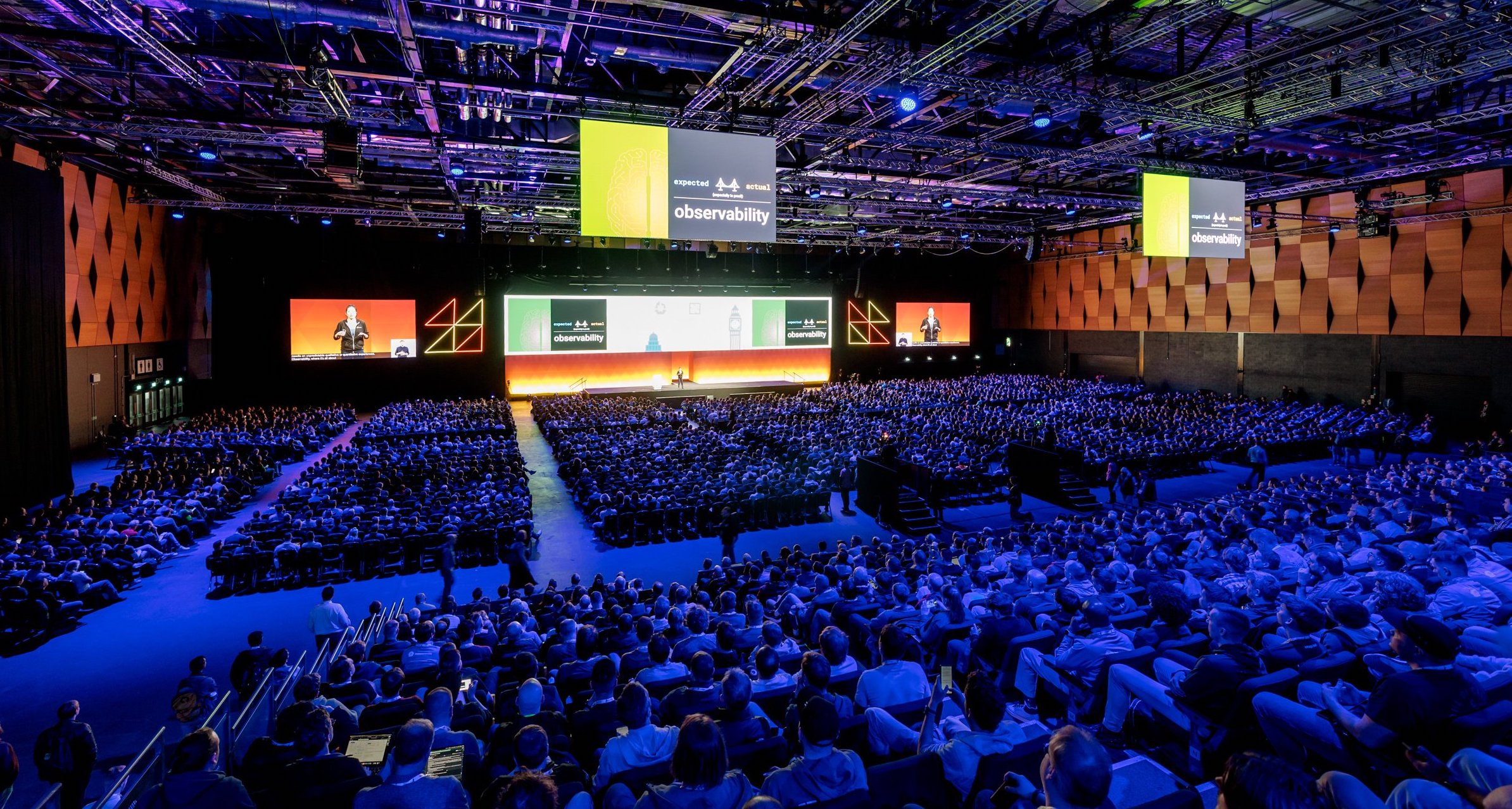The Cloud Native Computing Foundation’s flagship KubeCon + CloudNativeCon Europe 2025 event in London was the biggest KubeCon ever, exceeding the largest U.S.-based shows for the first time.
The excitement over all things cloud native in Europe, however, extended beyond the technology to the geopolitical landscape and how it’s affecting the European software industry – open source in particular.
Global politics drives the conversation
The political turmoil in the United States was an undercurrent in many conversations at the conference.
Though European software vendors continue to see the U.S. as a primary market, many software executives reported rumblings from their American customers about moving their cloud-based infrastructure to Europe to mitigate the new risk landscape of doing business in the U.S.
This surprising new trend is driving attention to various European efforts to support the software industry across the continent.
For example, the Linux Foundation, the parent of the CNCF, recently announced the NeoNephos Foundation, an initiative focused on facilitating collaboration and innovation around digital sovereignty and cloud-native technologies across Europe.
NeoNephos is an indicator of a broader European movement, representing the most significant open-source outcome from the European Commission Important Projects of Common European Interest (IPCEI) Next Generation Cloud Infrastructure and Services (CIS).
The European Union is also taking initiative to update its digital taxation policies in ways that will directly affect U.S.-based enterprises doing business in Europe. These broader initiatives across Europe all position the European software industry to assume a global leadership role now that the U.S. has dropped the economic ball.
Innovation continues unabated
Enterprise adoption of cloud native technologies is at an all-time high, and the innovation on display at KubeCon continues to drive business value across the globe.
European software vendors as well as American vendors doing business in Europe found the audience at KubeCon receptive to their offerings, encouraging further innovation.
Of the vendors I spoke with at the conference, nine stood out for their value-focused innovation despite the economic and political turbulence of the times. Here are my picks:
Delivering better isolation
The Kubernetes architecture contains many moving parts: containers on pods on nodes in clusters. Ensuring that one container or pod can’t snoop on the next one over is important for the overall security of the Kubernetes deployment.
Two vendors at KubeCon are delivering innovative approaches to Kubernetes isolation. Edera Inc. delivers strong isolation via a custom-built hypervisor that runs below the Linux kernel on any x86 or Arm processor. Each pod runs on its own Edera virtual machine, fully isolated from other pods in the cluster.
Also leading the isolation charge: vCluster from Loft Labs Inc. It’s a virtual Kubernetes cluster technology that supports multitenant virtual clusters with full isolation. The company is now rolling out virtual nodes: virtual container runtimes that isolate pods within each node.
Putting AI agents to use
Agentic AI is perhaps the most hyped technology at this minute, but the inherently skeptical KubeCon crowd looks beyond the buzzwords to see how any new technology solves real problems.
To this end, two vendors at KubeCon have put AI agents to good use. The AI agents from Doctor Droid (Deep Sea Tech Inc.) leverage an organization’s document-based knowledge to monitor and debug cloud-native deployments. These agents support operators with step-by-step instructions for how to solve problems, and upon operator approval, can take mitigating actions.
Kubiya Inc., in contrast, supports the full lifecycle of AI agents running on Kubernetes. The Kubiya platform provides the entire AI dependency stack, and The Kubiya gateway handles configurations, scheduling, RAG inputs, and other capabilities that support self-contained AI agents.
Reinventing observability with eBPF
This is technology that runs securely in the Linux kernel that can oversee and control the entire Linux environment, making it ideal for supporting observability for Linux-based software.
Three vendors at KubeCon were touting eBPF-based observability offerings. Groundcover Ltd. offers easily implementable observability for any cloud or cloud-native environment with built-in instrumentation that doesn’t require any coding.
Metoro Inc.’s offering resembles Groundcover’s, providing easy-to-deploy observability without coding. The vendor’s most significant differentiator, perhaps, is its AI-based debugging capabilities.
Grafana Labs (Raintank Inc.) has also been working on eBPF-based observability for a while now, via its Beyla open-source project. The company is now donating Beyla to the Open Telemetry project, supporting industry-wide adoption of eBPF-based observability.
Other notables
Two other vendors at KubeCon stood out for their innovative approaches to their respective problem areas.
Plural Labs Inc. is tackling the difficult problem of fleet management – managing hundreds or thousands of Kubernetes clusters. Its platform manages clusters in multicloud environments, on premises, or on the edge, or any combination. In addition, Plural facilitates continuous deployment at scale and can run in fully airgapped mode.
Finally, Northflank Ltd. has solved the technical debt and management overhead problems of infrastructure-as-code with a platform offering that works at a higher level of abstraction. Northflank takes a workload-centric approach (as opposed to infrastructure-centric), giving developers automated, self-service deployment into any Kubernetes environment on any cloud or on-premises infrastructure.
Cloud-native and Europe: driving business value together
The size and level of excitement at KubeCon in London underscores how prevalent cloud native computing has become for enterprises around the world.
The additional context of the shifting center of economic gravity from the U.S. to Europe is only accelerating the growth and adoption of cloud native technologies on the continent.
As Europe becomes the leading global economic force around the world, the cloud-native computing world – and by extension, the entire enterprise software landscape – is rapidly becoming a European-led endeavor.
Jason Bloomberg is founder and managing director of Intellyx, which advises business leaders and technology vendors on their digital transformation strategies. He wrote this article for News. Loft Labs is a former Intellyx customer. None of the other organizations mentioned in this article is an Intellyx customer. The CNCF covered the author’s expenses at KubeCon, a standard industry practice.
Photo: CNCF
Your vote of support is important to us and it helps us keep the content FREE.
One click below supports our mission to provide free, deep, and relevant content.
Join our community on YouTube
Join the community that includes more than 15,000 #CubeAlumni experts, including Amazon.com CEO Andy Jassy, Dell Technologies founder and CEO Michael Dell, Intel CEO Pat Gelsinger, and many more luminaries and experts.
THANK YOU










